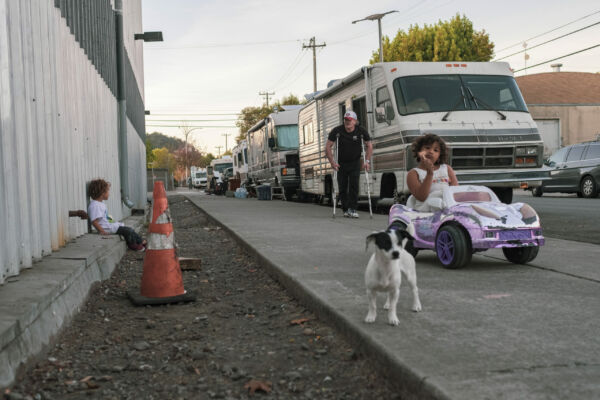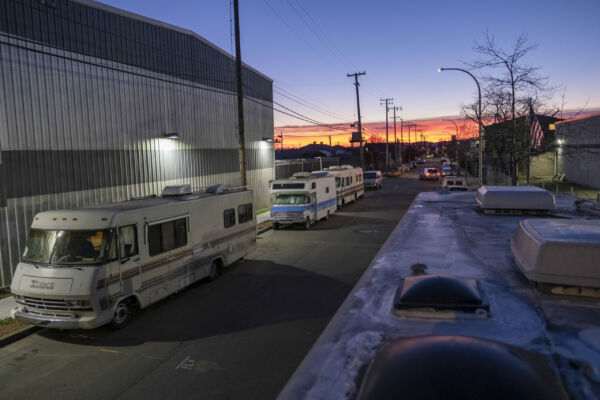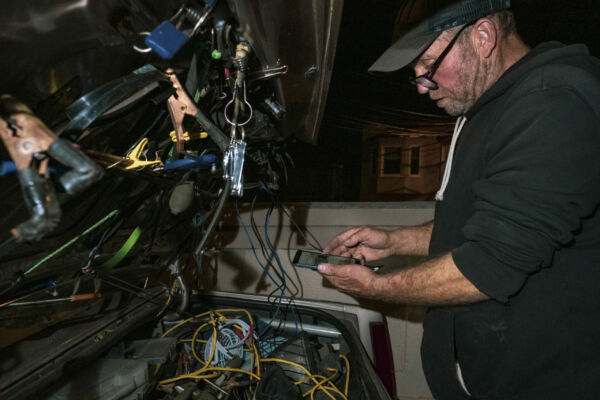Housing
Berkeley Forces Vehicle Dwellers to Keep Rolling
This photo essay accompanies the story “No Address, No Rest: Berkeley Forces Vehicle Dwellers to Keep Rolling,” which is part of the “Driving Home: Surviving the Housing Crisis” project.
San Francisco Public Press (https://www.sfpublicpress.org/series/driving-home/page/2/)
Thousands of Bay Area residents are “vehicularly housed,” living in cars, vans, RVs and campers. They like many others in search of alternative shelter are victims of a decades-long affordable housing crisis affecting the whole region. Photojournalist Yesica Prado, who has a unique longstanding connection with communities of vehicle dwellers, takes us behind the scenes to tell the stories of people finding ways to protect themselves and their friends in a sometimes-hostile political climate that restricts their movement and makes daily life more difficult.






The photos here are just a few examples. See the articles and photo essays linked below to explore the whole project, including coronavirus resource guides for vehicle dwellers in San Francisco and Berkeley in English and Spanish; an interview with Yesica Prado discussing the project on “Civic,” our daily news and public affairs podcast and radio program; and “Quarantine Diary,” a behind-the-scenes video documenting what her life is like living in an RV.
“Driving Home: Surviving the Housing Crisis” was produced in collaboration with the Bay Area visual storytelling nonprofit CatchLight through its CatchLight Local Initiative. As a CatchLight Local Fellow at the San Francisco Public Press, Yesica Prado examined the culture of vehicle living in San Francisco and Berkeley. Her fellowship work has been featured by the Yerba Buena Center for the Arts and by the Artists Against an #Infodemic Campaign, which aims to improve access to locally relevant public health information.
The CatchLight Local Initiative is funded by the Kresge Foundation, The GroundTruth Project, the Facebook Journalism Project, the Neda Nobari Foundation and the Lisa Stone Pritzker Family Foundation.
This photo essay accompanies the story “No Address, No Rest: Berkeley Forces Vehicle Dwellers to Keep Rolling,” which is part of the “Driving Home: Surviving the Housing Crisis” project.
Este ensayo fotográfico acompaña a la historia “Sin Dirección, Sin Descanso: Berkeley Obliga a los Habitantes de Vehículos a Seguir Rodando,” que forma parte del proyecto “Conduciendo a Casa: Sobreviviendo la Crisis de la Vivienda” (Driving Home: Surviving the Housing Crisis).
During the pandemic, parking enforcement has been lax, and the 72-hour rule that forced Gregory Nelson to park in a new spot every few days is suspended. He found peace and stability staying in one spot — his version of sheltering in place — like millions of Americans. But working from home was not possible for him. Every week he tried to drive for Lyft, Nelson grappled with out-of-pocket expenses to use the ride-hailing app: car rental fees, tolls, gas and the occasional car wash. Within weeks of the shelter-in-place order, Nelson could no longer afford driving.
Earlier this year, the San Francisco Public Press featured Gregory Nelson in “Driving Home: Surviving the Housing Crisis,” a photojournalism project by Yesica Prado documenting the experiences of people living in vehicles in the Bay Area. Prado followed up with Nelson to find out how his life has changed during the pandemic.
In a dimly lit living room, Tantay Tolbert reaches for a warm bottle of milk on the glass coffee table. Her month-old baby, Supreme Samuel Lloyd-Vaughn, softly cries in her arms. She caresses his black curls as she tilts the bottle into his mouth. “You were hungry, my baby?” Tolbert asks with a smile. “You eat a lot, baby.” It’s an ordinary day for Tolbert — comforting Supreme and dressing him in cute clothes. And yet, what seems ordinary now represents dramatic change and newfound stability.
Earlier this year, the San Francisco Public Press featured Tantay Tolbert in “Driving Home: Surviving the Housing Crisis,” a photojournalism project by Yesica Prado documenting the experiences of people living in vehicles in the Bay Area. Prado followed up with Tolbert to find out how her life has changed in recent months.